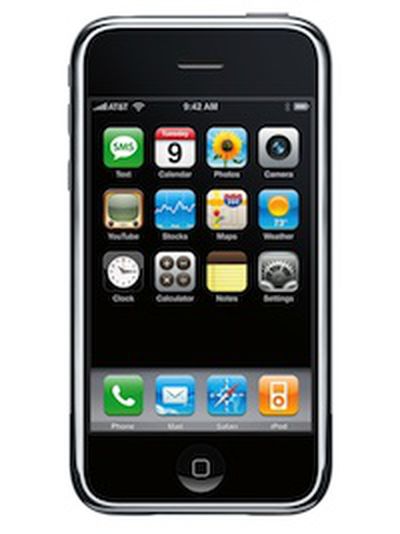 Apple senior software engineer Greg Christie took the stand today in Apple's second patent trial against Samsung, where he shared some details on the development of the "Slide to Unlock" function Samsung is accused of copying and gave additional details on the development of the original iPhone.
Apple senior software engineer Greg Christie took the stand today in Apple's second patent trial against Samsung, where he shared some details on the development of the "Slide to Unlock" function Samsung is accused of copying and gave additional details on the development of the original iPhone.
One of Apple's major arguments against Samsung is the fact that developing the iPhone was a serious risk for the company as it was new territory, a point that Christie reiterated in his testimony as he described the three year journey of the iPhone's development (via CNET).
The iPhone went through hundreds of different design tweaks as Apple worked to make the phone function in a way that anyone could understand. The company's focus on simplicity remains to this day, with Apple designing for "normal people," as described by Christie.
"One of the biggest challenges is that we need to sell products to people who don't do what we do for a living," Christie, one of the inventors of the slide-to-unlock iPhone feature, said. When designing products, Apple keeps in mind that it wants “normal people – people with better things to do with their lives than learn how a computer might work – to use the product as well as we can."
Christie helped develop some of the original iPhone's key features and he is known as the inventor of "Slide to Unlock," a function that prevents the iPhone from being activated accidentally while within a pocket. During his testimony, Christie also detailed the creation of the function (via Re/code), noting that Apple had originally aimed to have the device's screen on at all times.
A screen that was always on proved to be infeasible, with Christie citing an inability to meet power requirements. "We had to resort to a power button," he said, stating that the company was also concerned with "pocket dialing."
"We knew we had to have a locked mode, or a locked state, where it wouldn't let you do most things, except you could unlock it," Christie said.
That need resulted in the development of Apple's famous Slide to Unlock function, which Christie testified was an important feature on the phone because it is the first thing a customer sees on the iPhone, both in store and at home.
During this second patent trial, which covers newer devices, Apple was limited to levying just five patents against Samsung, making each one vital to the case. Apple is aiming to prove that each patent is highly valuable to the company and is seeking $2 billion in damages from Samsung.
Greg Christie gave additional details on the development of the original iPhone ahead of the patent trial, which can be found in his March interview with The Wall Street Journal.



















